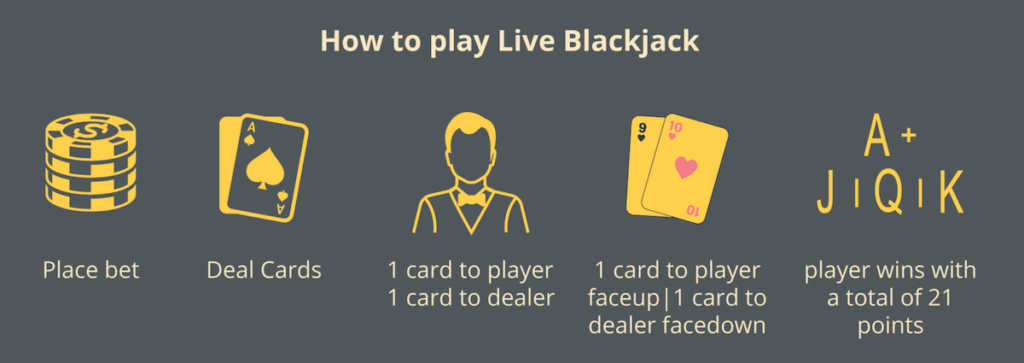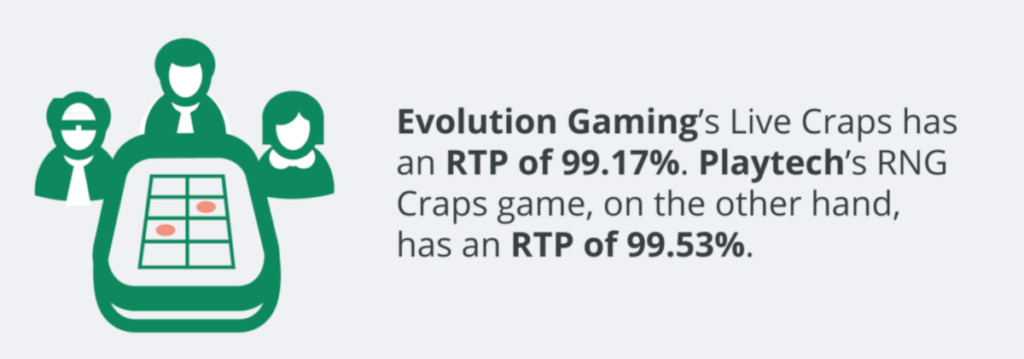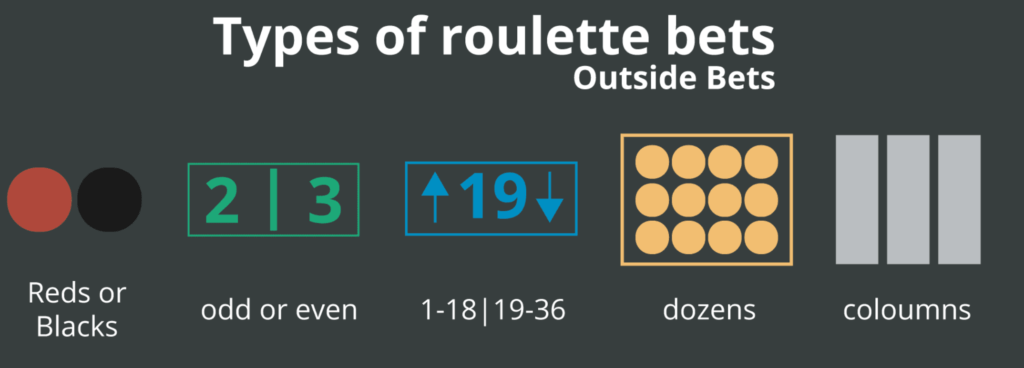By John Grochowski
Have you heard the one about the hot craps table, where you just couldn’t lose? Or the cold table where you just couldn’t win?
What about the one about the roulette dealer who could make the ball land wherever he wanted?
Casino lore can be a hit or myth proposition — as in should the blackjack player seated at the third base take one for the team, or is that just a myth?
Casino Game Myths
Let’s take a look at some of the most common myths around casinos and casino games.
1. Blackjack
The third baseman is a team player, and shouldn’t take the dealer’s bust card.
Wouldn’t it be nice if we knew whether or not the next card in the deck would make the dealer’s hand go bust?
When you’re sitting at third base — the last position at the table to play before the dealer — and you’re pondering whether to hit your 12 against a dealer’s deuce, or whether to double down on your Ace-7 vs. a dealer’s 6, wouldn’t you like to be sure if you’re taking the dealer’s bust card?
Problem is, we don’t know what the dealer has face down, and we don’t know what the next card is.
The proper basic strategy plays are to hit 12 against 2, and to double down on your soft 18 against a 6. But third basemen sometimes get hassled over such plays by those who seem to think there’s something mystical about the order of the cards.
That happened recently to Al, an acquaintance of mine who was baffled by the reaction when he doubled on Ace-7 against a 6.
“I’d just doubled down, and a guy at the other end of the table said, ‘You’re not a team player,’ he said. “And the woman next to him said, ‘If you’re going to make plays like that, we don’t want to play with you.’ And they picked up their chips and left.”
They wanted him to make a bad play, to take one for the team, because they thought he was taking the dealer’s bust card. That’s silly on several levels.
When the dealer has a 6 up, there’s no guarantee he or she has a high enough card face down that it can be busted with a one-card draw.
And even if the dealer does have a high card face down, there’s no guarantee that the next card will be the bust card.
A player who takes a hit at third base — or, in Al’s case, doubles down — could just as easily be taking a low card that would make the dealer’s hand. He’ll save the table with that play as often as he hurts it.
Ultimately, the third baseman must make the best play for his own hand. Unless the rest of the table is subsidizing his play, satisfying other players is not his responsibility.
2. Craps
A hot table is likely to stay hot, a cold table is likely to stay cold. Craps players are always looking for hot tables, and avoiding cold ones.
But unless you’re dealing with controlled rollers, a la Frank Scoblete and his Golden Touch Craps team, I’ve never really seen a reason why a hot table should stay hot, or a cold table stay cold.
We are dealing with dice, after all, that don’t know what the previous results have been.
Several years ago, I put it to the test.
For nearly a year, every time I was in a casino in the Midwest, South and in Nevada, I stopped by a craps table, waited until I saw two consecutive passes, then tracked the result of the next decision — not as good a sample as a million-hand computer run, but a lot more time-consuming.
The result: Pass bettors won 489 wagers and lost 511 on the next sequence after two consecutive wins.
That’s close enough to the mathematical expectation of 493 wins and 507 losses that we can say the percentages held up in this trial.
I also watched 1,000 trials that started with two don’t passes, then charted the next decision. The dice passed 496 times in those 1,000 trials — just three more passes than the expected average.
There were only 28 rolls of 12 on this test, so don’t players won 476 bets and lost 496, slightly below their expectation of 479 wins per 972 trials.
Now, a thousand trials each way isn’t enough to satisfy a statistician, but if hot tables stay hot and cold tables stay cold, well, you can’t prove it by me.
3. Roulette
An experienced dealer can make the ball land where he pleases. If a dealer has enough experience and practice, do you think he or she can hit numbers at will? An awful lot of people do.
Dealers I know scoff at the notion.
With the wheel spinning one way, the ball going in the opposite direction, bouncing on the surface and from fret to fret separating the numbers, there are far too many physical variables for a dealer to control where the ball will land.
Dealers not only can’t control where the ball is going, their employers don’t want them to. As long as the results are random, the casino makes its money.
With a random wheel, the house has a 5.26 percent house edge on a double-zero game that is unchanging.
However, if a dealer could control what numbers were coming up, there’s a chance someone would be in on the secret and take a lot of money from the casino.
That’s the last thing the owners want. Random games mean big profits for the operators. Taking the randomness out increases operator risk.
4. Video poker
On a one-card draw, you’re likely to draw a card of the same denomination. Dave is a friend of mine who is a good, well-read, well-practiced video poker player.
After a short, frustrating session in which he lost all the money he cared to risk for one day, he phoned me to rant.
“Every time I had a one-card draw, the card I drew was the same value as the card I discarded,” he complained.
I suggested there might be a little selective memory at work, and after he let off a little steam, he agreed. Maybe it wasn’t EVERY time.
On the average, one of every 15.67 one-card draws in video poker will bring a card of the same value. If it happened EVERY time, it would be a plus when we have four cards to a flush — if we discard a 4, for example, one of the remaining three 4s will complete our flush.
That 1 in 3 chance is far better than the 1 in 5.2 chance we really have on a one-card flush draw.
On the negative side, if we were guaranteed a same-value card on every one-card draw, we’d never fill out a four-card straight or turn two pairs into a full house.
In the short term, if we get two or three same-card draws close together, we start thinking the machine is doing it all the time. But when you keep careful track of results, the effect disappears.
That’s what I do. In one session, when it seemed like I was getting a lot of same-card, one-card draws, I started counting results.
When the next six one-card draws brought different value cards, I stopped counting. I really knew the answer before I started.
Coincidences sometimes seem like patterns, but machines aren’t really programmed to give you the same card when you draw one.
5. Baccarat
Just as in blackjack, counting cards can help you win. Baccarat is a card game decided by the totals of two or more cards, as is blackjack.
So maybe, just maybe, counting the cards can give the player an edge, just as blackjack card counters can get a mathematical edge on the house. Right?
Well, yes, but not in any practical way.
Favorable situations are really rare. The late Peter Griffin wrote in “The Theory of Blackjack” that a baccarat player who doesn’t bet unless he has an advantage can squeeze an edge of about 0.7 percent of his maximum bets on banker and player.
However, that player might play only about three hands per eight hours. That’s watching, not playing.
For bets on ties, it’s theoretically possible to count down to a 24 percent edge with six cards remaining, provided all the cards are dealt out.
In the real world, nobody deals out all the cards, and with one-half deck cut out of play, the bettor’s potential edge on the last hand shrinks to just .08 percent.
With just a small reservation, we can say the myth of the baccarat card counter is JUST a myth.
6. Slot machines
You’re more likely to hit a jackpot in a busy casino. I once read a book in which the author advised slot players to play at peak times in busy casinos because that’s when the most jackpots are hit. And it’s true.
More jackpots are hit at peak times in busy casinos than when the casinos aren’t so busy.
Why? Because slot machines are played more often at peak times. How does that affect my chances of winning? Not at all.
Let’s say I’m in a casino with 1,000 slot machines, each programmed to pay off the top jackpot about once per 20,000 pulls.
It’s Saturday night, so every machine is busy, all with steady players spinning the reels at about 500 pulls per hour.
In two hours the reels spin a collective 1 million times, and, if the machines hit right on the average, 50 jackpots are paid.
One in every 20 players has a big payday. If I’m not one of them, I’ve at least seen a few jackpots paid.
Now let’s say I return early Wednesday morning. Only 100 slot players are in the casino, playing the same 500 pulls per hour as those on the busier night.
In two hours, the reels spin only 100,000 times, only 10 percent as much as on the busy night. If the machines hit right on the average, only five jackpots are paid.
Fifty jackpots on the busy night. Five on the slow day.
But with only 100 players in the casino, those five jackpots mean one in every 20 players has a big payday — the same as on the busy night.
My chances of being one of those to hit the jackpot are the same on the calm day as on the busy night.
I don’t really care how many jackpots are being hit around me. I care about what’s on my own machine. And the presence of a crowd doesn’t change that one way or the other.
The Top 10 Slot Machine Myths – Busted!
In this two part series, Steve and Matt Bourie from the American Casino Guide, discuss 10 of the most common myths that players have about how slot machines work.
Topics covered in part 1 include:
- Someone else won my jackpot!
- It doesn’t matter what symbols you pick in a bonus round
- A slot machine knows when you lower your bet and will pay out when you do
- You can affect the outcome by stopping the slot machine reels early
- Using a players card lowers your chances of winning
Topics covered in part 2 include:
- Slot machines by the aisles and doors are “looser”
- Casinos tighten up slots on weekends and loosen them up during the week
- If a machine hasn’t hit in a while, keep playing because its due to hit
- If a jackpot just hit, the machine will stop paying
- If a machine is set to pay back 93% I will get $93 back if I bet $100
- Always bet max coins
7. Poker
Changing seats can change your luck. There’s nothing any more magical about the order in which the cards come out in poker than there is in blackjack or any other card game.
If you’re changing seats because you’ve been getting bad cards and you think moving will bring you better hands, well, good luck to you.
Now, there are perfectly legitimate reasons to change seats. If you’re playing at home and a seat opens that’s closer to the refrigerator, by all means, grab it.
If you’re next to a smoker and see clearer air across the table, go for it.
There are legitimate poker reasons, too. If you see a player at the table who you think you can take advantage of from a different betting position, that’s a move-worthy reason.
If you’re on the other end of the stick, and a player betting before you has you on edge, change seats.
But if you think another seat will bring better cards … well, there’s as much chance your old seat will get better cards as that your new one will. Past deals have no effect on those in the future.
8. Counting Cards in Blackjack
It’s impossible to count cards in a six-deck game; you’d have to be the Rain Man. On my radio show, I recently had a caller tell me he thought it was impossible to count cards. That showed mostly that he misunderstood what card counters do.
Counting cards does not mean memorizing every card in the deck that’s played. It’s keeping track of the balance of high cards vs. low cards remaining to be played.
In a balanced count such as the common Hi-Lo, if you see a 10 and a 6 come out, you’ve seen a high card and a low card.
They cancel each out, you add nothing to your count, and you move on. You don’t have to remember the specific cards that have been played.
Using a plus-and-minus system, it’s not difficult to count cards, no matter how many decks are in play.
Applying the count to your bet size, estimating the number of decks remaining to be played, making the changes to basic strategy dictated by the count, keeping your bets appropriate to the size of your bankroll, coping with the distractions in a casino environment — that can be difficult.
Few would-be counters can keep all that under control. But just counting the cards — is that impossible? No.
9. All table games
Money management systems can overcome the house’s mathematical edge. A reader once sent me a system that he swore would beat craps. It involved managing his money by increasing and decreasing his bets according to previous results.
Nothing as drastic as a double-your-bet Martingale, but still calling for larger bets in losing streaks.
He provided a chart that showed a profit of over a million trials on the computer.
He said his minimum bet was $1, and he tried to keep his maximum to $10,000.
Where he planned to find a real casino that would let you spread bets from $1 to $10,000, I don’t know.
What he tried to downplay was that he exceeded his $10,000 “limit” four times, and outside those four trials, his system lost money.
Leaving aside the table minimums and maximums, money management systems fail to beat the casino because the house edge is the same on every roll of the dice, every spin of the roulette wheel.
That you’re betting more money on this roll than the last makes no difference to the dice or the wheel.
They have no memory and don’t know whether you’ve won or lost.
Money management systems can be useful ways to discipline yourself to stay within your bankroll. But to change the edge that is as solid as math can be.
That’s just a myth.
10. Any casino game
The longer you’ve gone without something happening, the more likely it is to happen. This is one roulette players love. If black numbers have come up six times in a row, then the next one has to be red, doesn’t it?
If it’s been 100 spins since the last time the ball landed in 00, isn’t it time to start betting on 00?
No. In almost all cases, such results are just coincidences. Of the 38 numbers on a double-zero wheel, 18 are red, 18 are black, two are green. The chances of the ball landing on a red number are 18 in 38 — on every spin of the wheel.
The chances of 00 or any other single number turning up are 1 in 38 — on every spin of the wheel.
There’s an outside chance that there’s something wrong with the wheel, that it’s out of balance or the frets aren’t right, and that’s the reason certain numbers haven’t hit in a while.
Such situations are rare, but if there’s a physical reason a number isn’t turning up, then it won’t start hitting now just because it seems to be due.
No matter whether you’re playing roulette, craps, slots, video poker, the Big Six wheel or nearly any other game, past results make no difference. And that’s no myth.



